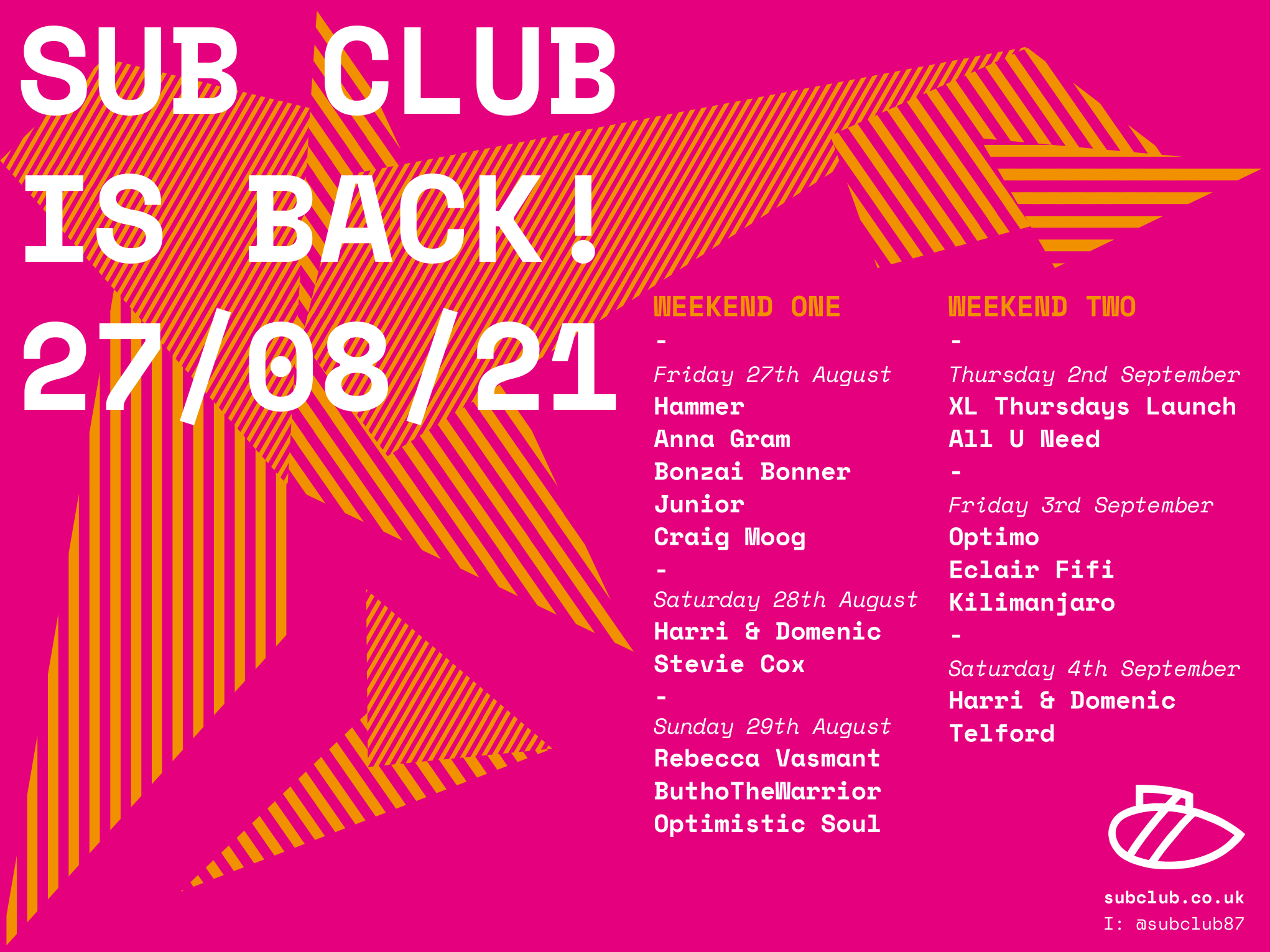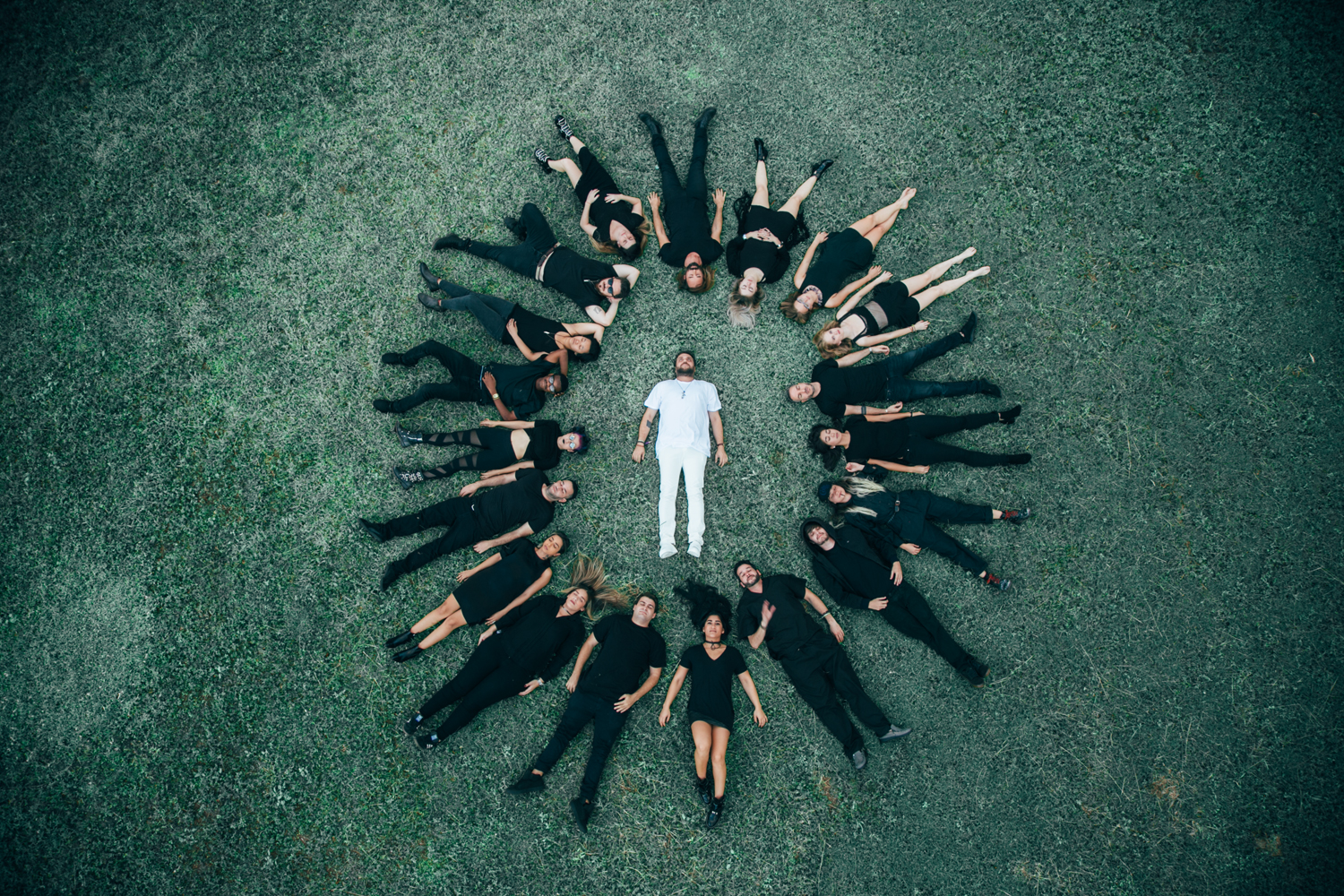This Saturday, two underground music legends will reunite; DJ Tennis (aka Manfredi Romano), and SubClub. The moniker stems from his earliest days as a DJ when he played sets at a local tennis club and the people attending misread the invitation.
At the risk of sounding clichéd, DJ Tennis has done it all.
In his teenage years, he listened to The Cure, Joy Division and other alternative rock bands. It was only later whilst studying computer science at the University of Pisa that Romano became interested in electronic music.
His career in music began by selling post-punk era records and progressed to producing music for TV adverts, scoring film soundtracks and managing alternative and punk rock bands. He then focused his attention on developing the Italian underground music scene and established both the Elita festival in Milan and the Dissonanze festival in Rome. He began DJing relatively late in 2010. His label, Life and Death, initially established in collaboration with Thugfucker’s Greg Oreck and Matteo Milleri from Tale of Us, has become a mecca for electronic artists who think outside the box.
But what really sets DJ Tennis apart is his eclectic, dynamic sets. He isn’t chained to any one genre and he plays for the people. He never plans the tracks he’s going to play and this means every DJ Tennis experience is unique – there isn’t only one way to entertain a crowd, and he recognises that. He mixes disco, techno, funk, breakbeat – you name it – interchangeably with little regard for the ‘rules’. With new sub-genres are emerging all the time, a great DJ can stay ahead of the curve – dance music nowadays can often be too formulaic, and the blurring of genres is what leads to creative and original sets.
Good music can’t be categorised. It should just be enjoyed.
Welcome back to SubClub, DJ Tennis!
What is the record would you say you treasure most in your collection?
There’s not a record that I treasure the most in my collection. I have many records that are bonded and connected to different points and moments of my life. One of the records that I have been listening to a lot recently is a record by Mark Hollis (Talk Talk singer). He died in 1998. The record is an incredible self-titled album and I bought it back then and I still have it on vinyl… it’s a beautifully arranged album.
I would say it is a folk-pop record (also very emotional) with a lot of experimental jazz elements. It’s just uplifting with dreamy compositions and is something that I listen to when I want a minute for myself as it deserves silence.
Did writing and producing music influence the need to start DJing?
My intention was never to DJ so the goal was not necessarily to translate music into a performance but it was mainly the pleasure to create music and create something out of little things.
And of course the energy… the fact that we were gathering together with other people to make music. This was something that brought me back to the 90’s when I was playing punk music. I was not an excellent musician. I knew how to play basic guitar, I pretty much started from that. I used my limited guitar skills to write phrases that after I translated onto a synthesizer.
Money never was the target and being popular was not even an idea. It was all about gathering with friends and sharing musical knowledge while having fun, drinks and laughing. It’s just an inspiring and creative way to spend time with your friends and that’s how punk music was born.
It’s much more related to a community than a path that leads to success. And the “simplicity of doing” that makes everything more special. And freer.
You say in an interview that ‘punk is an attitude’. Would you say that electronic music can be punk? Do you see parallels between your experience of alternative rock and your experience of electronic music?
I think punk music, like electronic music, is born when people try to do things on their own, without help or without complex equipment, money and with limited tools.
Punk music was born in a basement just with cheap guitars, cheap drums and cheap instrumentation. Same with electronic music, when I personally started working on it I had a computer, a sampler and a cheap keyboard on my bedroom desk and that’s how I started making beats and mangling sounds. I think this is the same for most of the people at least at the beginning.
How did your experience in producing music for adverts and film soundtracks inform your DJing later? (If it had an influence!) Is your Displaced Soundtracks compilation series inspired by that time?
I made music for movies, soundtracks and theatre plays for the pleasure of giving an interpretation and to create a vibe and an environment around the images or just to help to tell the story or add something to a story. I always liked that. I sometimes watched television and I would mute it and play around with sounds of my Casio Keyboard…. and some of my Instagram stories show that!
I like the interaction between sound and visual approach. Telling a story is not easy. Music can totally change the meaning of an image or it can affect it and this is just an incredible thing to do, so yes… the Displaced Soundtracks is inspired by that.
Asking people who normally work in dance music, to do something that is not necessarily functional and tell a story on his own and that can stimulate imagination and vice versa.
Lastly – do you have any advice for aspiring DJs?
My advice is always the same. Be unique and don’t be afraid to be different.
Grazie per il suo tempo!
Words: Lorena Duguid


